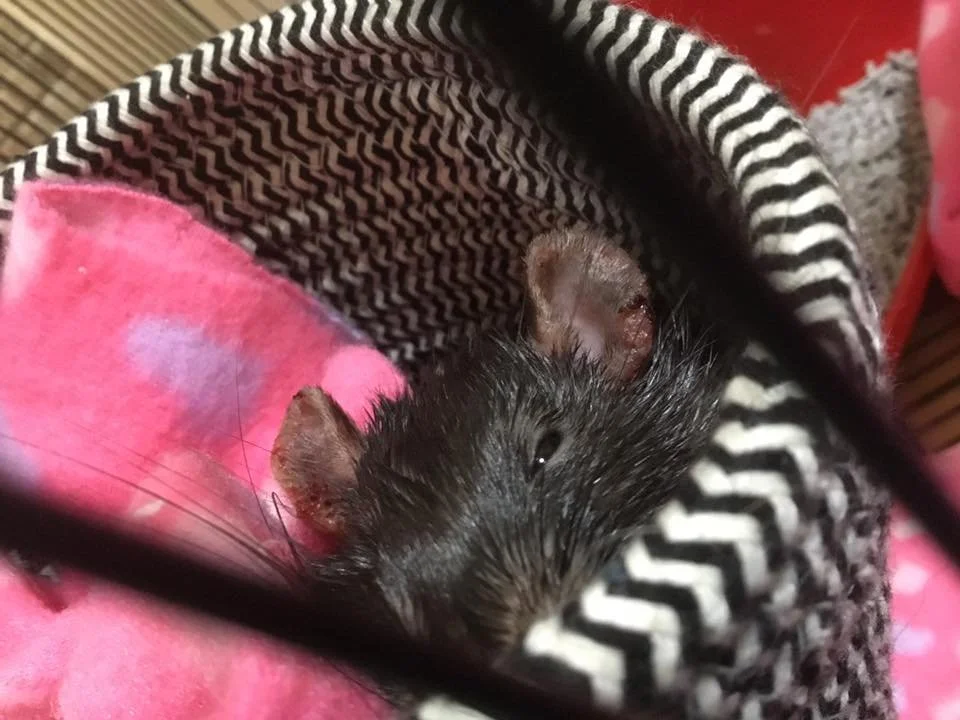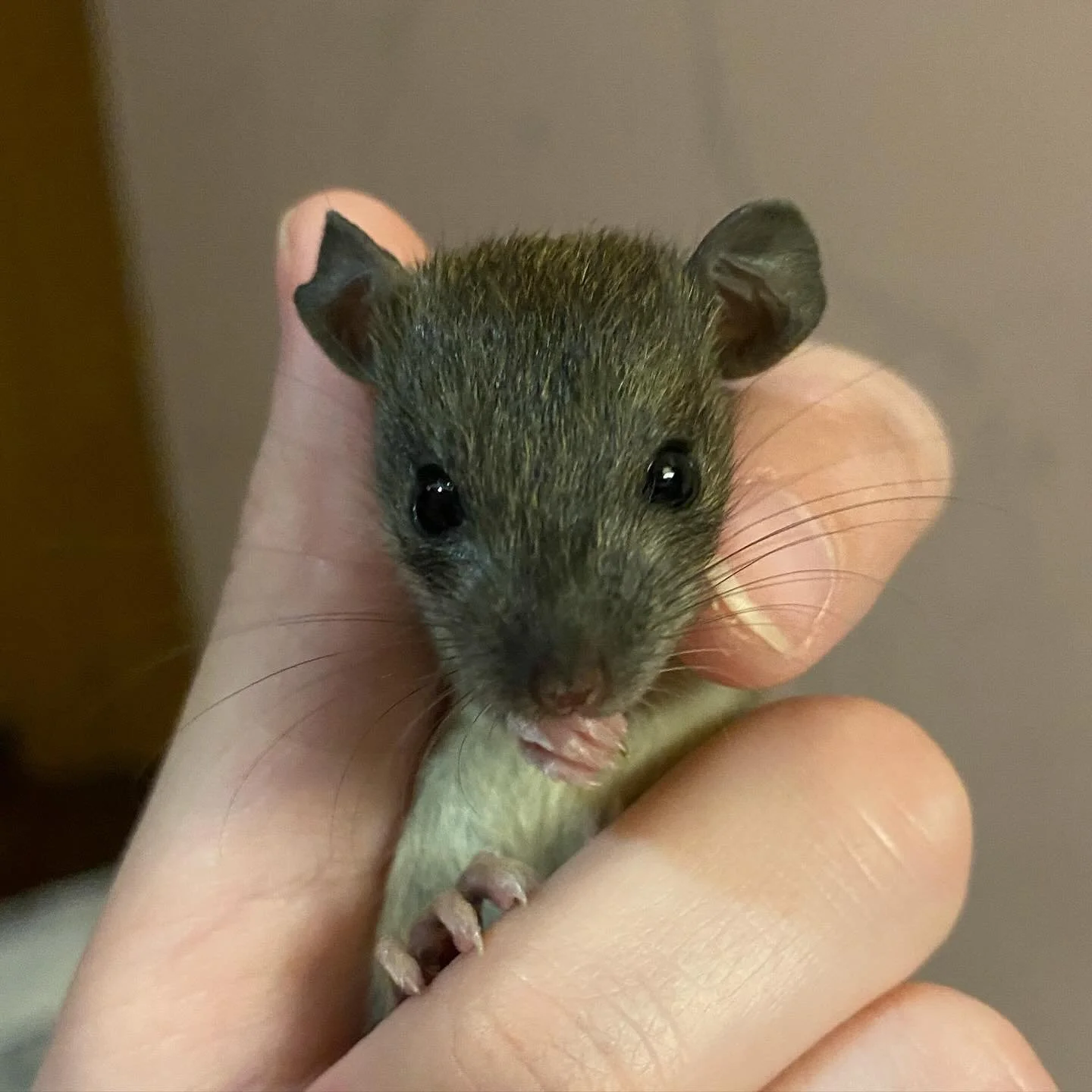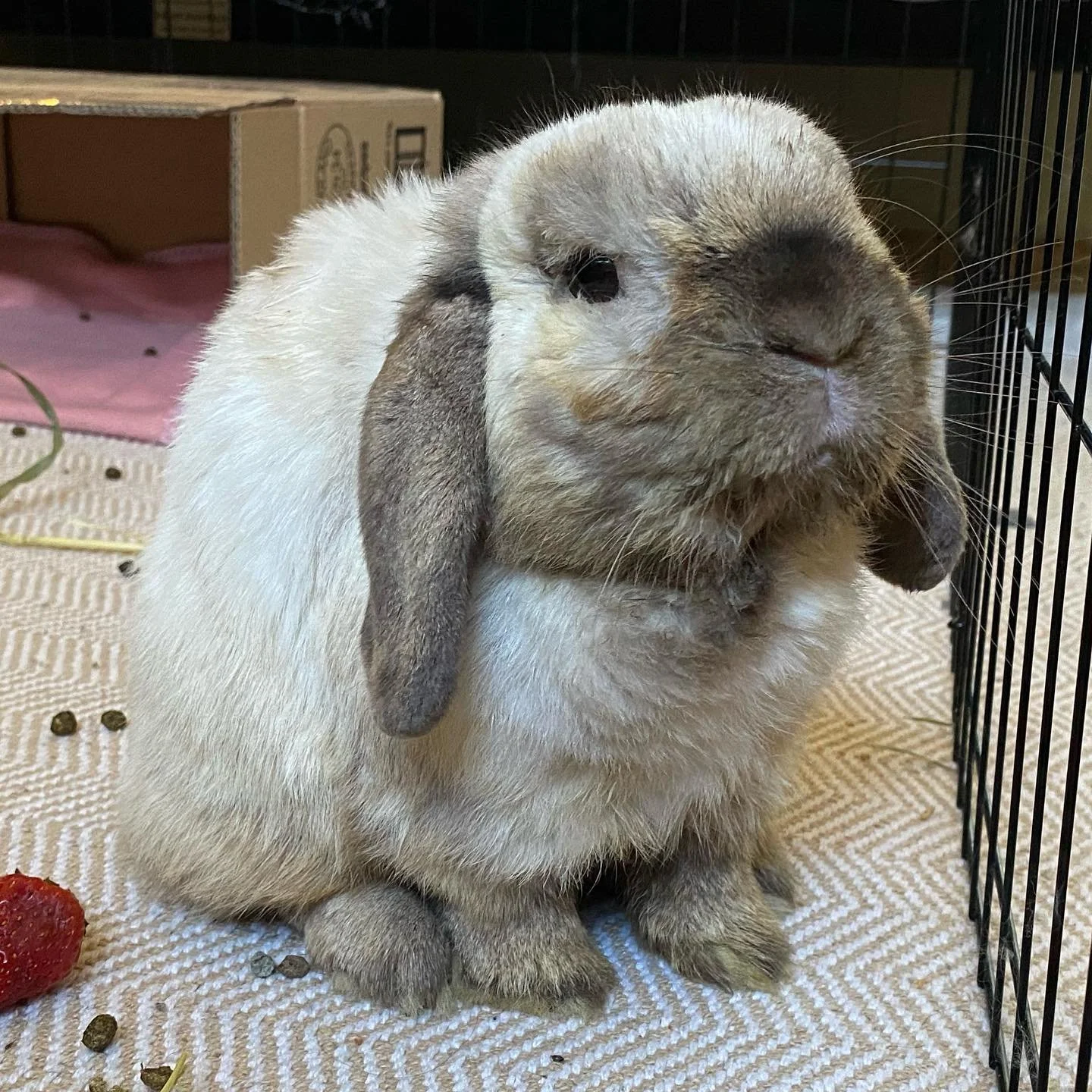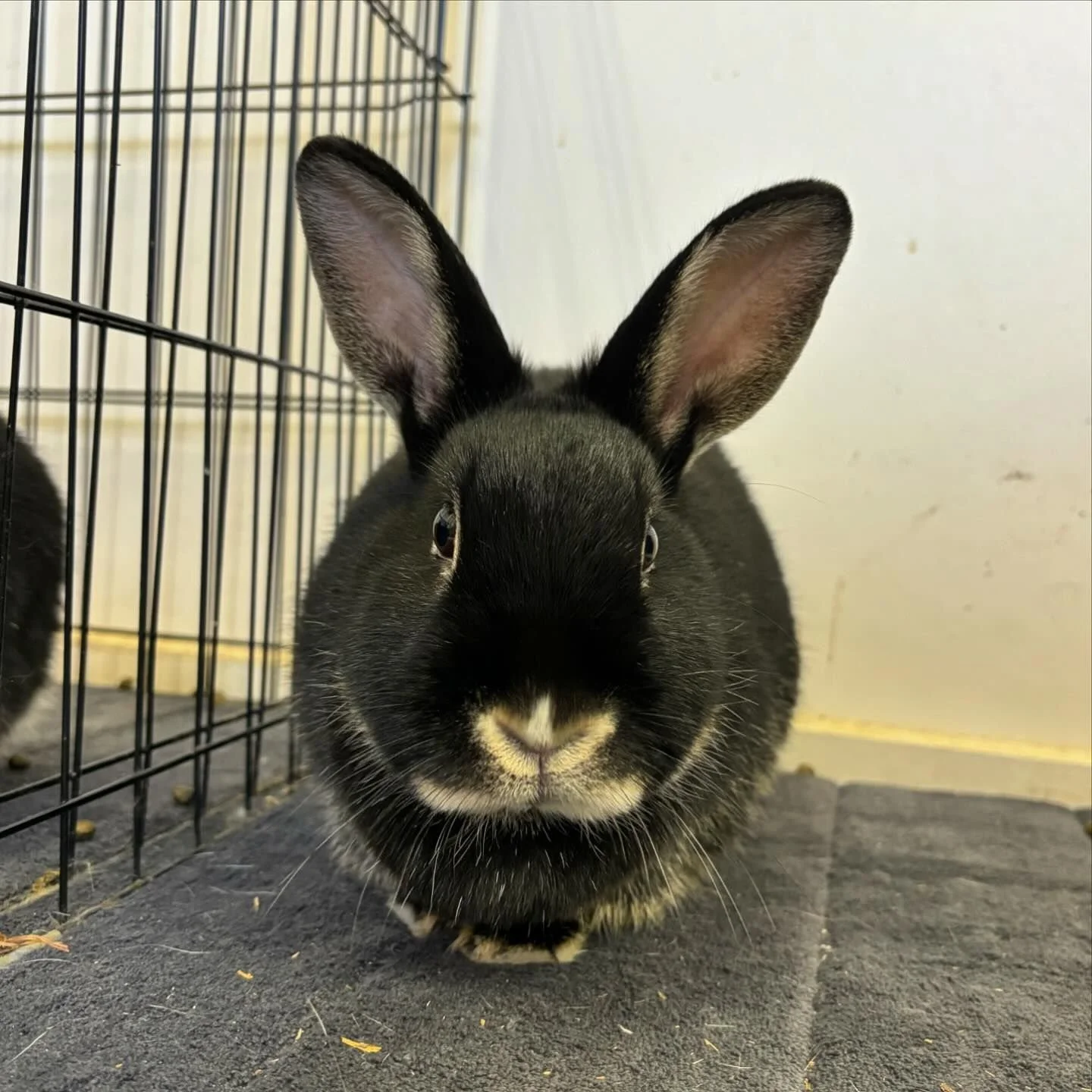
We specialise in the care of small animals, especially those with complex needs.
Species We Care For
-

Mice
We take in domesticated mice, captive-born hopping mice, and orphaned wild mice.
-

Rats
We take in domesticated rats and orphaned wild rats (of non-native species).
-

Rabbits
We take in domesticated rabbits, as well as orphaned wild rabbits and hares.
-

Guinea Pigs
We take in guinea pigs, most commonly through referral from other rescues.
Saving Lives, Providing Care
At OOTP, we take in animals for a wide variety of reasons, but primarily exist to meet a community need for specialty care of high-needs rodents and rabbits. We seek to provide a safety net to prevent at-risk animals from being neglected, abused, abandoned, or unnecessarily euthanised.
Once they arrive at OOTP, we provide animals with a safe environment where they are recognised as the individual that they are. Each new resident is carefully integrated into a suitable social group, if appropriate, and is provided with any additional care that they require.
Most animals we take in remain with us in sanctuary, where they get to live out the rest of their life in peace. Others will be given vital vet work and adopted out to loving homes.
We spare no expense in seeking the very best veterinary care. We have paid for tumour removals, dental surgeries, and the provision of unconventional medications. We are not a large-scale rescue. Instead, we seek to provide exceptional lifelong care and rescue-rehoming to a small number of animals.
Our areas of expertise include the care of:
Orphaned animals
Elderly animals
“Highly aggressive” and “highly fearful” animals
Large groups of mice and rats, including pregnant and nursing mothers, that result from accidental breeding
Animals suffering due to poor prior living conditions, including those with parasite infestations, skin ailments, fight wounds, heavy soiling, and malnutrition
Animals with illnesses and disabilities, including congestive heart failure, kidney disease, respiratory infection and disease, hind end paralysis, blindness and glaucoma, malocclusion and other dental issues, benign and cancerous tumours, limb and digit deformities, and more
OOTP is currently home to more than 300 residents, including 2 rabbits, 275 mice, 20 rats, and 17 Mitchell’s Hopping Mice. Many are elderly, or have chronic illnesses.









